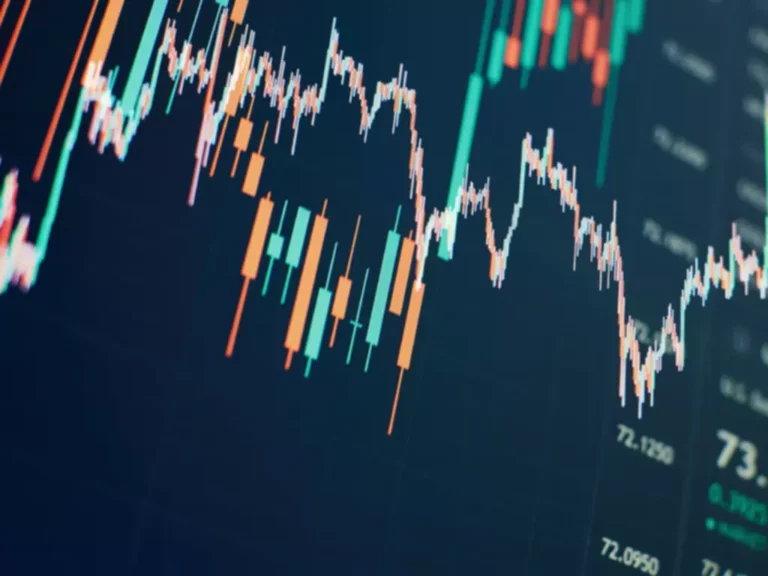Examples of institutional traders include pension funds, mutual funds, insurance companies, hedge funds, sovereign wealth funds, endowments, business banks, and funding banks. Compared to retail investors what is institutional trading, institutional traders have a longer-term funding horizon and are usually considered more subtle and informed market members. They are subject to various regulations and reporting necessities to make sure transparency and shield the interests of their shoppers. Institutional buyers play a vital position in monetary markets by providing liquidity, efficiency, and stability. Institutional investors are giant organizations that pool and invest money on behalf of their clients or members. They include entities corresponding to pension funds, mutual funds, insurance firms, hedge funds, and investment banks, which frequently deal with substantial quantities of capital.

What Are The Forms Of Household Offices?
- Hedge funds are some of the well-known forms of institutional investors within the financial world.
- Retail investors usually pay more charges for his or her actions since their investments are much smaller than those of institutional buyers.
- These institutions make use of the premium they obtain from policyholders into securities.
- However, with the rise of online trading platforms and monetary training sources, retail investors now have more alternatives to participate in financial markets and make knowledgeable investment selections.
- It’s very important for these merchants to continuously enhance their expertise to function extra effectively and convey extra capital into the market.
Here, there’s a fund manager, who’s referred to as the overall partner, and a bevy of investors referred to as limited companions. Investment in securities markets are topic to market dangers, learn all of the associated paperwork fastidiously earlier than investing. Investments in securities market are subject to market risks, read all of the related paperwork fastidiously earlier than investing. Investment in securities market are subject to market dangers, learn all the related paperwork rigorously earlier than investing.
Institutional Buyers In Indian Capital Markets

Not all buyers in the inventory market are retail traders or individual stakeholders, who deal in bonds/stocks as per their very own choose and choose policy. There are entities that trade securities on a large scale, and sometimes even on behalf of commercial banks, mutual funds and much more. These large scale security trading entities are generally known as institutional traders. The investment methods deployed by them are very completely different from the strategies utilized by retail buyers due to the type of entry they have to the financial markets.
Types Of Institutional Investors
Furthermore, institutional traders employ groups of experienced personnel with a vast array of information in regards to the monetary markets to ensure the funds of traders are professionally managed. Anyone, whether or not an individual or an entity, who invests in a stock market and purchases and sells shares and other financial property is called an investor. An investor is a key pivot of a inventory market, with out whom the entire idea of it is incomplete. Investors can, nonetheless, be broadly categorised based mostly on the type of investments, type of funding type, and the chance urge for food. One such kind of traders who play crucial roles in deciding and reversing market tendencies are called institutional investors. While the idea of particular person investor is often understood, it is important to learn and perceive the idea of institutional investors.
How Are Institutional Buyers Completely Different From Retail Investors?
They also have much less entry to info and should discover it more difficult to conduct thorough analysis due to limited sources. Additionally, the comparatively smaller dimension of their trades means they have minimal affect over market costs. With the trend for on-line trading platforms’ rising recognition, retail traders turn into more and more dependent on expertise when it comes to research and performing trades. Instead, they may use cell apps and online tools for market evaluation and making investment choices. Individual investors are generally told by fee-based advisors that they can purchase “institutional” share classes of a mutual fund instead of the fund’s Class A, B, or C shares. Designated with an I, Y, or Z, these shares don’t incorporate gross sales costs and have smaller expense ratios.

We acquire, retain, and use your contact information for legitimate enterprise purposes solely, to contact you and to supply you info & newest updates relating to our products & services. Yes, FIIs and their sub-accounts should be registered with the Securities and Exchange Board of India beneath the SEBI Act, 1992. The institutional merchants have zero or minimal involvement in relation to the Initial Public Offers. The institutional merchants have a near-total involvement when it comes to the Initial Public Offers. Institutional traders negotiate foundation point charges for each transaction and require the most effective price and execution.
Institutional merchants purchase and sell securities for accounts they handle for a bunch or establishment. Pension funds, mutual fund households, insurance corporations, and trade traded funds (ETFs) are common institutional traders. Due to their intricate nature, these transactions typically deter particular person merchants. Moreover, institutional merchants are frequently approached for investments in initial public offerings (IPOs).
With substantial monetary assets at their disposal, institutional traders wield vital affect out there. Institutional investors are large entities corresponding to pension funds, hedge funds, and insurance coverage companies that rent finance and funding professionals to handle massive sums of money on behalf of their clients or members. They usually have access to more sources and knowledge than retail investors, and they typically have specialised investment groups to make selections. Institutional possession can point out that a selected inventory has a good opportunity to book a revenue. Retail traders, sometimes called individual merchants, purchase or promote securities for private accounts.
The number of shares traded by retail merchants usually is too few to impact the value of the safety. Because of the big volume, institutional merchants can tremendously impression the share worth of a safety. For this purpose, they sometimes may cut up trades amongst varied brokers or over time so as to not make a material impression. To sum it up, institutional traders are integral gamers within the home and world monetary panorama. With their important property and strategic funding approaches, they have the potential to stabilise markets, gasoline large-scale initiatives and facilitate financial growth. And as you proceed to navigate the complexities of the monetary world, a complete understanding of the roles and affect of those monetary powerhouses is crucial.
On the opposite hand, retail investors are individuals who buy and promote securities for his or her private funding portfolios. They usually have fewer sources and fewer access to information, and they may rely more heavily on private research and analysis. Additionally, institutional traders are generally seen as more subtle and have a longer funding horizon compared to retail investors. The money that institutional buyers use isn’t truly money that the institutions possess themselves. Institutional traders usually invest for different corporations, organizations, and folks.
These factors mixed make IPO investing a posh decision that requires careful consideration. Market sentiment and tendencies additionally play a big position in attracting investors to IPOs. The buzz and excitement surrounding a company’s public debut can create a beneficial funding setting. Investors typically look to capitalise on this momentum, hoping to benefit from the initial surge in demand for the corporate’s shares.
Please use the website navigation or web site search on the prime of the page to search out content similar to what you were on the lookout for. It’s any group or particular person dealing in securities in giant volumes on behalf of other entities. Endowment funds are arrange by foundations, where the administrative/executive entity makes use of the funds for its cause. Typically, colleges, universities, hospitals, charitable organizations, etc. set up these funds. This is to tell you as per Rules, Regulations and Bye-laws of Multi Commodity Exchange of India Ltd (MCX),that we do client based buying and selling and proprietary buying and selling.
Some examples of institutional traders are Mutual fund houses, insurance companies, pension funds, and so on. Institutional investors may be pension funds, mutual funds, cash managers, banks, insurance coverage firms, investment banks, industrial trusts, endowment funds, hedge funds, private fairness buyers, and more. Several of the benefits institutional traders as soon as loved over retail buyers have dissipated. One of the most important institutional investors in India is mutual fund homes. They are entities that pool funds from investors and make investments them in a basket of various securities generally known as mutual funds.
Some are saving up for retirement, whereas others are wanting to grow their wealth. They make their funding selections primarily based on private research, tips from financial advisors, and on the trending securities available in the market. This weblog will cowl the 2 major categories of merchants within the Indian monetary market. So, bursting your enthusiasm, other than retail merchants, we have institutional merchants who trade in financial devices.
Read more about https://www.xcritical.in/ here.
